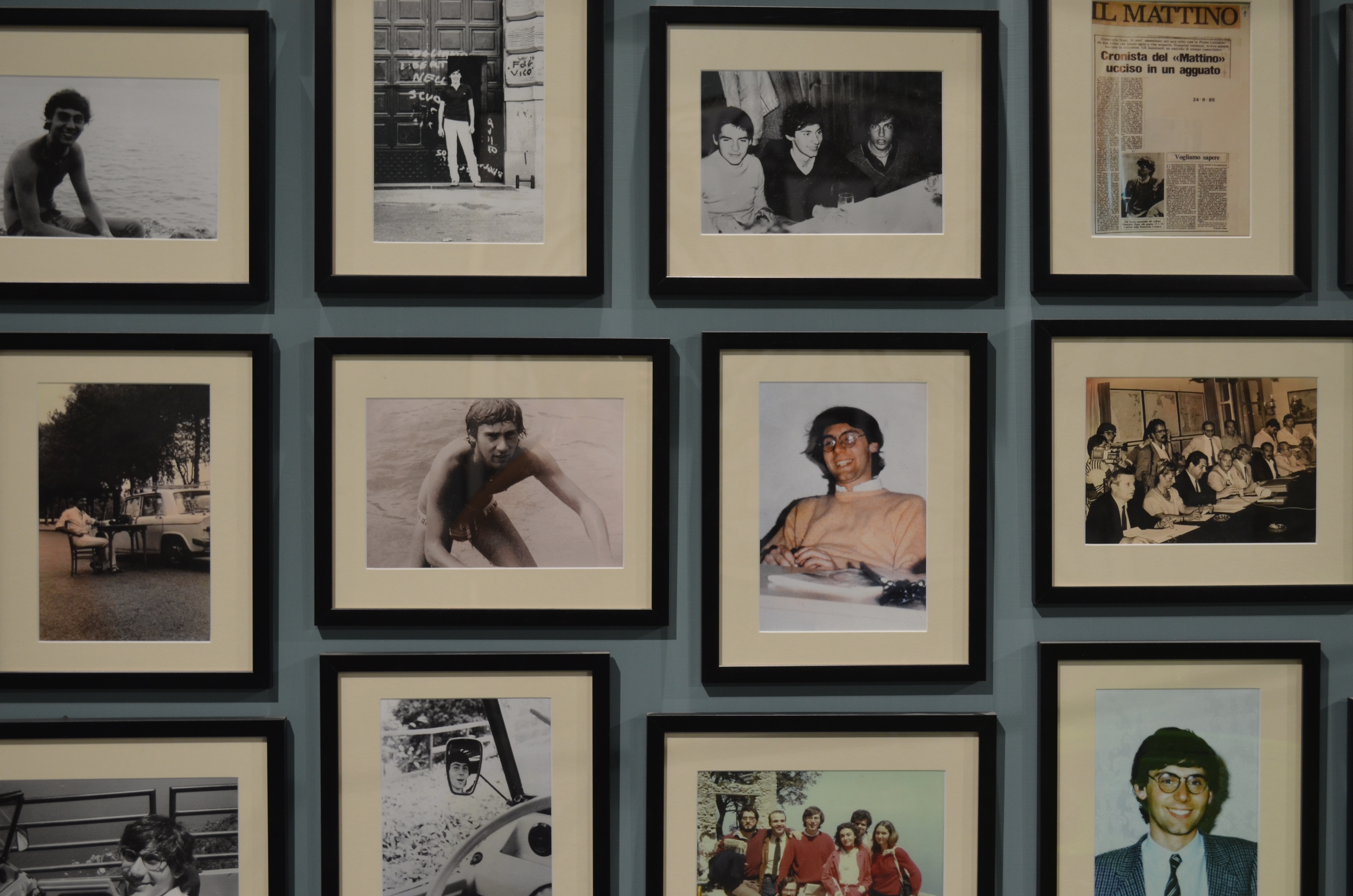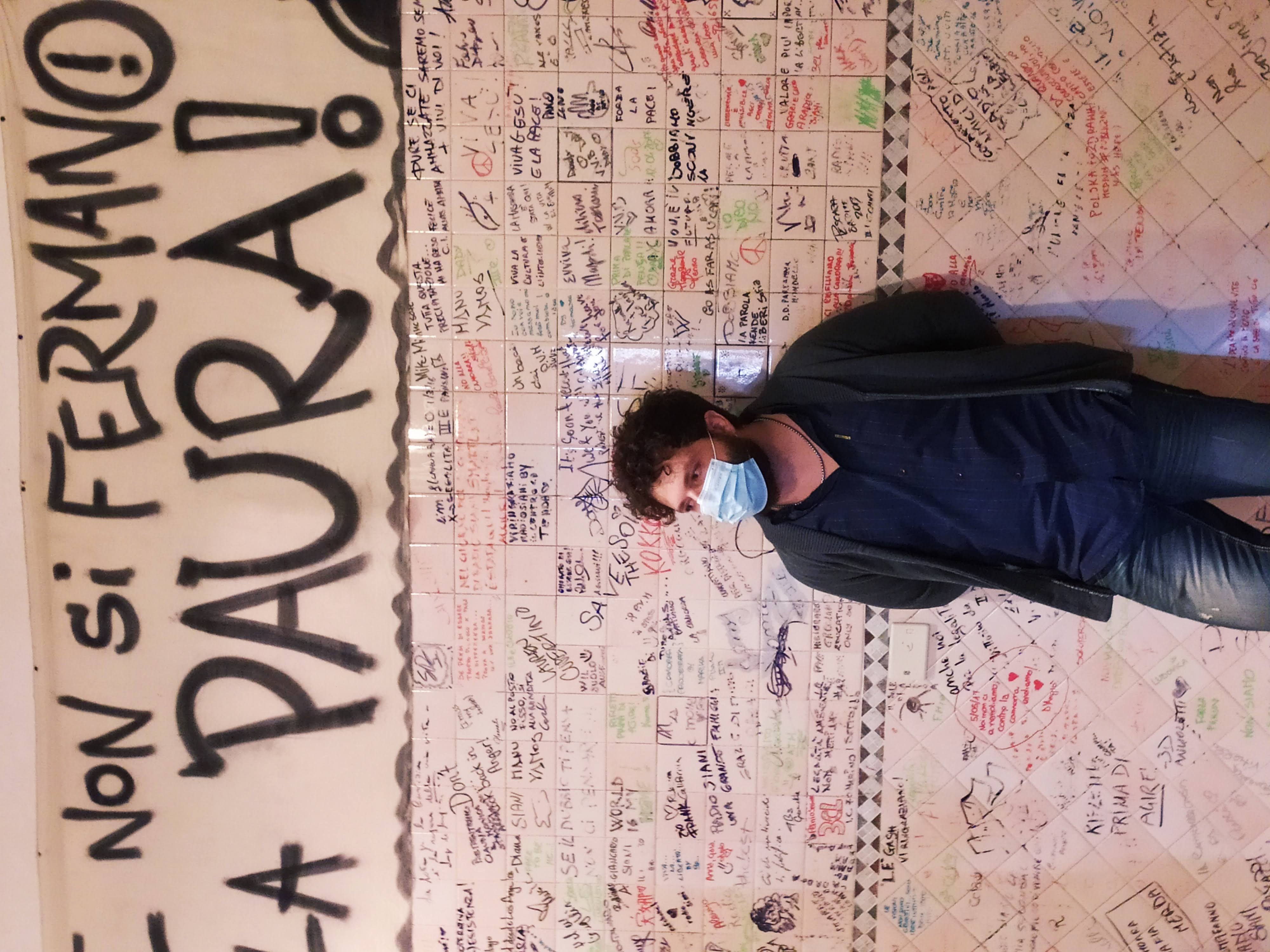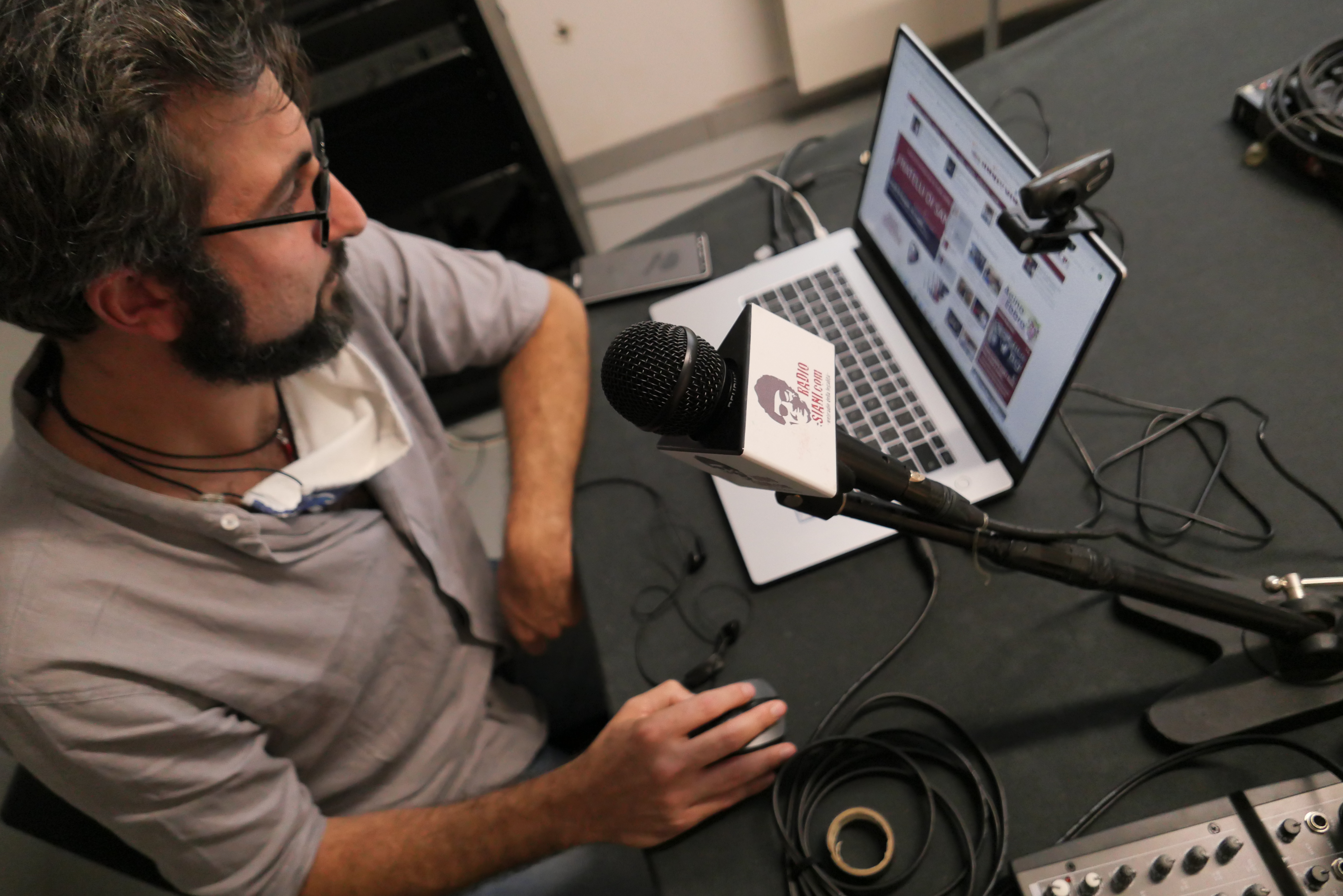
Italy: meet the radio collective that's standing up to the mafia
Published on
Translation by:
Madeira ScauriIn 2009 a group of young people in the town of Ercolano, just outside of Naples, set up a radio station to promote culture and independent news against the threat of organised crime. Ten years on, Radio Siani has become a symbol of the wider struggle for social rights in the face of mafia intimidation.
62 Corso Resina, Ercolano. Not long ago this was home to the Birra mafia clan, one of the most notorious Camorra crime families in the Italian region of Campania. It was here, at this address, that the bosses asserted their despotic control over the surrounding neighbourhood. In 2009, however, this all changed when the state confiscated the property. Since then it has been occupied by Radio Siani, an independent public service station. One of the rooms overlooking the street is decorated with hundreds of inscriptions, scrawled in marker pen, spelling out slogans like "Camorra merda" (Fuck the mafia) and "Le idee non si fermano con la paura" (Fear cannot stop ideas). These works of graffiti are a testimony to the rebel spirit that now dwells within these walls. "The lives and deaths of a great many people were decided here," reflect Giuseppe and Gabriele as they pace through the house where the radio was set-up more than ten years ago, "occupying this place is symbolic to us because, in a certain way, this is where the revolt was born." The rooms have been empty for a few months now. They're waiting for money to arrive that will enable them to start renovating.
In the past three decades the Italian justice system has taken an estimated 100,000 properties out of mafia hands. This process began in 1982, when a law was passed to confiscate all capital that was deemed to have been obtained through "illicit-means." All movable assets, like cars and boats, were free to be resold. In 1996, however, the local authorities signed-off on further legislation regarding the "social use of confiscated goods", which dictated that all real estate in this category was required to be re-used by local institutions, cooperatives or associations, in the "public interest." Today, according to the anti-mafia association 'Libera', there are 16,446 such properties in the hands of the National Agency of Confiscated Goods. 865 of these are dedicated to a purely social function.
In memory of Giancarlo Siani
When the state confiscated the Birra clan's house in autumn 2009, the property passed into the management of a youth group who wished to set up a new community centre for culture and entertainment. Meanwhile, outside, the mafia was continuing to kill. On 13 November, gang members accidentally shot dead an innocent young man named Salvatore Barbaro during a botched vendetta. A few days later, Sofia, the owner of a bakery in the town found a bomb in front of her building, after she refused to pay protection money. For the young volunteers, this was a step too far. On 21 November, they organised a march in the centre of Ercolano, in the name of justice and resistance. To begin with, the group was small, made up of just 30 people. Over the course of the demonstration, however, the crowd swelled to over 1000. It was these conditions, and the urgent need to respond to the violence of organised crime, that lead the activists to set up Radio Siani.
Giancarlo Siani himself was an investigative journalist from Campania. The Camorra killed him on the 23 September 1985, when he was only 26. Siani was investigating suspected collusion between organised crime and local politics; specifically the apparent misuse of public funds that were supposed to be allocated to the reconstruction of areas in the province of Avellino that had been affected by an earthquake of 1980. The radio was named in his honour: to celebrate the memory of a true journalist who was killed simply because he was doing his job.

In 2010 the youth group took the step of formalising their movement into an official association comprising over fifty people. They took the name of Zona Rossa (Red Zone), in reference to the seismic and volcanic risks in the area around Mount Vesuvius, where they are located, but also to the amount of blood spilled by the Camorra in that same territory. Thanks to collaboration with other nation-wide activist groups, the organisers became aware of the need to educate themselves and others about the mafia's actual economic activities, and to offer alternatives based on principles of social equality.
"We realised that people in the area didn't know much about the Camorra, that they had no idea about the scale of the damages this mafia group has caused in the past, and still continues to," Giuseppe explains. While the group initially limited itself to covering live and ongoing mafia trails, it gradually began to expand its output in order to talk about the innocent victims of organised crime, and the anti-mafia movement more generally. "We had to act as spokespeople for the memory of the victims," he adds.
"We talk about culture and justice in order to stand up to the Camorra"
In addition to the aforementioned issues, Radio Siani began to broadcast more general content about society, culture, food and local events via podcasts and live web transmissions. "We talk about culture and justice in order to stand up to the Camorra. We realised that we couldn't fight them directly on the front lines, but that we had to outflank them, because unfortunately there are a lots of components that allow the mafia to work. The ignorance and isolation of young people is an important part of this. So we've really been trying to direct ourselves at tackling that problem". From promoting zero kilometre agricultural models to hosting discussions about world literature, Radio Siani offers a positive message in order to reach the broadest audience it can. Among other things they've broadcast a cooking show for blind and visually impaired individuals; they've also interviewed a theatre director who organised a production named 'Blood Brothers' in a nearby prison, exploring the appeal of mafia among some young people.
Rehab and cherry tomatoes
In 2012 Radio Siani set up a social cooperative with the aim of sustaining the movement and offering more concrete opportunities to help underprivileged people. The organisation is made up of seven core partners around whom a series of external actors orbit, each offering specific activities. As with most Italian associations and cooperatives, the battle for resources is tough, and keeping the activities going is a real struggle. Radio Siani's core activities are funded by a few sources that are, together, more or less stable. First of all, there are European, Governmental or Regional calls, which they respond to whenever they can. In addition, the young associates make ends meet by cultivating cherry tomatoes in a field at the bottom of Vesuvius. This land, which is almost a hectare in size, and which was also confiscated from the mafia, allows them to offer work to three people who grow organic produce. They are currently trying to diversify what they can cultivate. Finally the cooperative tops up its revenue stream by conducting trainings at schools, offering sponsorship and other communication services, and by managing rehabilitation projects, targeted at disadvantaged young people and former prisoners.

Giuseppe and Gabriele don't try and hide the fact that the funding situation is far from ideal, either for their own livelihoods or for the structure as a whole. Nevertheless, the broader situation in the region and the country itself helps them keep things in perspective. "For years we were faced with such bad employment prospects. We were underpaid and exploited. In the end, creating a cooperative and earning a small amount, but being our own bosses, free to choose if we want to work 15 hours on one thing, and tomorrow on something else, was also question of lifestyle choice. It's almost impossible to find a job here in the South. So instead of going somewhere else to work, we decided we'd rather stay and try to create our own future within the cooperative", says Gabriele, who joined-up three years ago.
Members of Radio Siani have often faced threats from the Camorra, on account of their activities. They've found flat tires punctured by broken glass, and even been intimidated at gunpoint. Yet according to Giuseppe, as their work has gone on, the attacks have been gradually diminishing. "When [the mafia] understood what we were trying to do, and what we'd already created, when they understood that we were not some hit squad, that we were not looking to settle any scores or beat people up, but that we were focusing on cultural work to benefit the citizens and the children, we had almost no problems." Giuseppe and Gabriele have decided to adopt a casual attitude regarding the threats that do exist. "Whether we're denouncing illegal construction, environmental destruction, racketeering, violence and the abuse in a broader sense, the reaction is always the same..." Either way, from those first demonstrations, to occupying a mafia family's house, Radio Siani has now come to represent a genuine challenge to organised crime.

Since August the property on Corso Resina has been completely empty. Three years ago, Radio Siani won a public tender put out by the Ministery of Justice which they'll use to renovate the studio. The construction works should have started this summer but they've been postponed due to a delay in the distribution of funds on the part of the municipality. In the meantime, the members of the radio continue to set up their microphones in their homes and around the streets and piazzas to continue spreading their message of justice against the mafia.
This article was made possible thanks to an Erasmus + exchange between Cafébabel and Radio Siani in October 2020.

Read also : How French authorities collaborate with reformed criminals
Translated from Radio Siani : symbole de la résistance à la mafia



